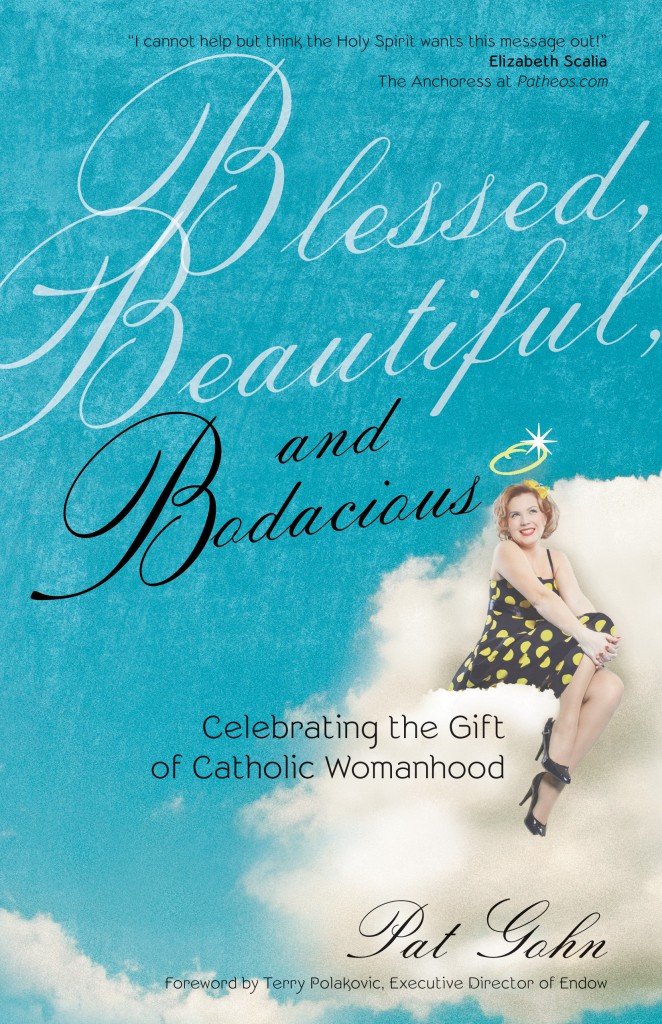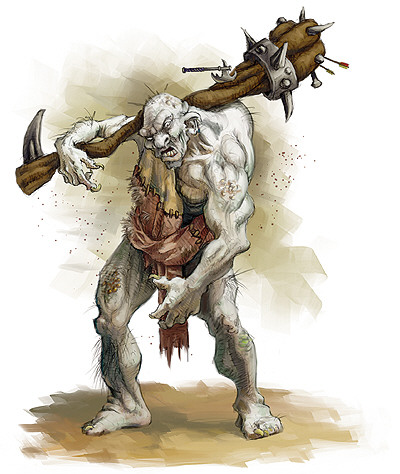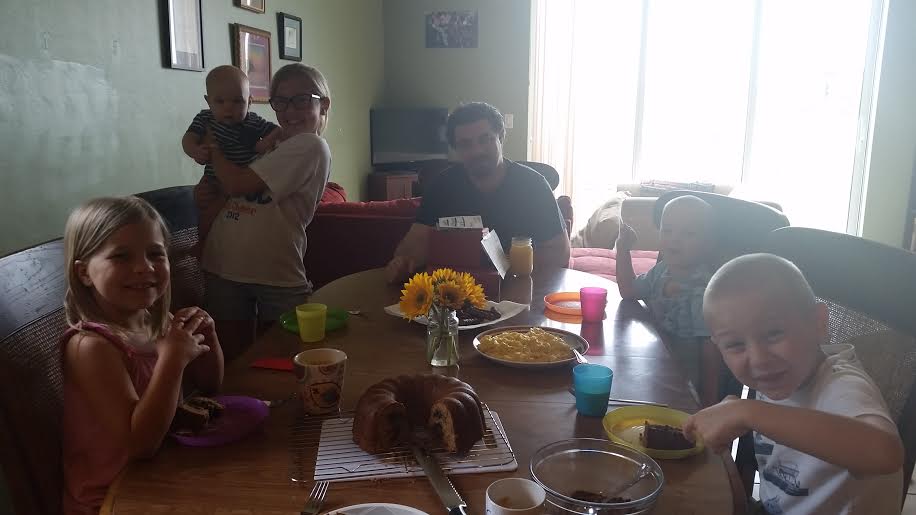
So here I am, joining in the roundtable discussion of Pat Gohn’s Blessed, Beautiful, and Bodacious: Celebrating the Gift of Catholic Womanhood.
Unfortunately, I’m the professional equivalent of the kid who put off writing her term paper until 3 am the morning before it’s due. Today is the last day of the roundtable, and I’m typing this up at 10:22 pm, hoping I can finish before midnight.
It’s been a hell of a week for this country. Emphasis on the hell part. It’s been a hell of week at my house here in Ave Maria, too, with much less emphasis on the hell part. Just lots to do, lots of kids, lots of teething Lincoln, and little sleep. I could probably pass off the embarrassing procrastination I’ve done on either one of those facts and no one would hold it against me.
Alas, Jiminy Cricket lives in my stupid head, and I cannot bear to tell a lie, even one that would make me seem like an infinitely better person.
The truth is, my most wonderful Anchoress told me a few months back that I had to read this book, because it is a message I need to hear. So I jumped at the chance to get a free copy in exchange for a review.
I read the first 66 pages the day I got it and then put it down and walked away for a week.
I knew what Pat was saying was good stuff, and stuff I needed to hear. Yet I have this absolute, unyielding mental block against talking about spiritual issues in a certain language. “Bible-study language,” I call it in my head. I grew up going to lots of Bible studies, and save one very special one on the cusp of adolescence, most of them were kind of crappy. Emotive, touchy-feely, lots of “God laid X on my heart about you” that was mostly a socially acceptable way to say “X bugs the shit out of me and I think you’re definitely going to hell for it and I’m backing up my claim with God so you can’t ignore me.”
Let me make it absolutely clear that this is NOT what Pat is doing in her book. Also, so you can understand the depths of my neuroses, when I say “Bible-study language” I mean phrases like “beloved daughter of God”, calling Scripture passages “love songs”, and every instance everywhere of the word “wooing” (yes, even in classical literature). Innocent, and often accurate, expressions elicit a kind of knee-jerk aversion in me. I can’t stop myself from viewing anything that carries the slightest hint of relating to God in an emotional way with suspicion.
I knew, reading the book, that this was a problem in me and not in the book. So I put it down for a week, walked away, and came back last weekend with a kind of grim determination to read the book and listen to what it was actually saying, instead of reading the book while listening to a superimposed playlist of my mental version of “Bible Study Worst Hits, 1995-2002.”
It had not been a good day for me. The Ogre and I were fighting, the kids were disobeying, I was shoved face-to-face with my own complicity in their disobedience, and Lincoln wouldn’t sleep.
I was annoyed with everyone in my family. I had things to do, and they were getting in my way even more than usual. They were just all so selfish, with their food-wanting and diaper-dirtying and inability to wipe their own faces and hands. I sat down on the floor and grudgingly let Lincoln crawl all over my lap while I picked the book back up.
No kidding, these were the first words I read:
“I learned firsthand that marriage is an amplifier. Everything I liked or disliked about my man before I married increased in volume after marriage. I ran headlong into a wall of my own selfishness and struggles for power, not to mention my own anger issues that erupted from my quick temper. I struggled with the sacrificial aspects of taking care of a home and family. Putting others’ needs ahead of my own was harder than I had thought. I bristled when I could not control things.
Motherhood intensified my struggles, often reducing me to tears. I was profoundly disappointed with the shortcomings of my love-my lack of achievement! I was trying to achieve in my marriage and achieve in my mothering the way I succeeded in school and at work, as if there were a performance scorecard attached to my efforts. ‘No greater love’ required something more than the tyranny of perfectionism; it needed my attentiveness, my surrender, and sacrifice. Love was first more about being, rather than doing, and putting people ahead of things. It involved a willingness to be in the moment rather than rush past it-receiving instead of achieving.”
(Pat Gohn, Blessed, Beautiful, and Bodacious, p. 67)
I don’t like it when things like this happen to me; when there’s a perfect storm of craptacular moments that I store up and let fester, encouraging them to thrive in the darkness, letting them twist me into utter resentment, and then someone’s words or a reading or a homily hit at just the right time when I can’t ignore them or pretend they don’t apply to me. I don’t like having to ‘fess up to being angry or selfish or bitter when the only alternatives are absurd denial, or possibly tequila. It’s easier to recognize shortcomings in myself when to do so feels like a noble thing, such an act of unflinching self-examination as to be itself worthy of praise.
When someone is just pointing out the obvious, and not even directly to me, it sucks to have to be like, “yeah, okay. I get it. Grudgingly.”
And that’s basically how the rest of the book was.
Happily, my attitude improved after some much-needed rest and a long post-apology makeout session with the Ogre, so I didn’t hold a grudge against Pat for the last half of the book. Nevertheless, the rest of my book is swimming in pencil marks and dog-ears. The chapters on sensitivity, generosity, receptivity, and maternity were particularly illuminating for me, since I had never connected those things as gifts particular to women. Except for maternity, obviously. Although that one’s been hard for me to accept as a gift.
Although I read the chapter on “Entrusting Your Maternity to Eternity” with particular interest, I felt much the same way I’ve felt reading lots of other writing on women and child-bearing. Like I understand what’s being said, I believe what’s being said, and yet something goes wrong in the translation from my mind to my soul that what should feel like this precious, wondrous gift still feels like a terrifying curse. (Granted, I’m only just now beginning to crawl out from under post-partum depression, and that’s never an ideal time to read about what a blessing maternity is.)
Ironically, though, two short sentences on the second-to-last page of the book succeeded in reconciling me more to the particular life-bearing gift of the Catholic woman than anything else ever has.
“Womanhood and life.
Those terms are inseparable.”
Reading those words gave me much the same feeling I had when I listened to Stephen Hawking explain the Big Bang Theory. Before that, I had spent a lot of time trying to figure out if I could accept this “evolution” business, if I could make it fit into my understanding of the world, if there was room for it in my life.
Then Professor Hawking smashed my head against the cold, hard wall of Truth, and I realized pretty quickly that I’d better figure out how to shift my understanding of the world to align with scientific fact, since scientific facts weren’t going to be changing no matter how much I wanted them to.
So it is with women. So it is with me. Life is inextricably tied to my being, to the biological fact of my existence. It can be irritating and draining and exhausting, but unless I want to short-circuit my healthy, properly functioning body with dangerous chemicals or shove some latex between me and the man I love, I’d better just figure out how to reconcile myself to my body, to my gender, to my identity as a woman, instead of lamenting how unfair biology is.
Biology isn’t going to change because I find it burdensome. My kids aren’t suddenly going to become angelic and compliant any time I have work to do, and save their pesky questions for the half-hour of time when I’m in a good mood and ready to answer them. The Ogre isn’t suddenly going to stop irritating the ever-loving crap out of me by always being right and always being able to prove that he’s right. “Bible-study language” isn’t suddenly going to become my newest favorite type of writing to read.
In the end, though, what needs to change isn’t everything around me, but me. And in the end, what I appreciated most about Pat’s book wasn’t that it explained the particular gifts of womanhood, but that it explained what it means to be a woman. Life and womanhood are inseparable terms, and it goes much deeper than biology.
(You can buy Blessed, Beautiful, and Bodacious here, and you should, if you are a woman, know a woman, or if a woman gave birth to you.)










